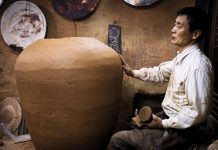“The Call of Africa: Who Controls Africa?” offers a fascinating exploration of the complex power structures that shape the continent. From the vital role of women in education and tradition to the traditional leadership of village chiefs and the influence of the modern state, this documentary provides a thought-provoking look at the intricate web of social structures that shape Africa.
The film begins with a powerful assertion: women are the backbone of African society. Through their tireless work educating children and passing on tradition, they play a vital role in ensuring the survival and continuity of African culture. Without their steadfast commitment, Africa would collapse.
But women are not the only key players in African society. The film also examines the role of village chiefs, ancestral figures who serve as the guardians of tradition and the focal point of social life in many communities. These chiefs are often the source of conflict, as their power struggles can create tension within and between tribes.
Above the chiefs and women, modernity has introduced a new power structure: the state. As the film explores, this has brought about a new set of challenges, as traditional power structures clash with the demands of the modern world. The state can be a force for good, providing education, healthcare, and infrastructure to the people, but it can also be oppressive, imposing its will on communities and ignoring their needs and desires.
Through interviews with women, chiefs, and government officials, “The Call of Africa: Who Controls Africa?” provides a nuanced and complex look at the forces that shape the continent. It reveals the tensions and contradictions inherent in African society, and suggests that the key to unlocking Africa’s potential lies in finding a way to balance tradition with modernity, and to harness the power of all its people.
Overall, “The Call of Africa: Who Controls Africa?” is a powerful and thought-provoking exploration of the power structures that shape one of the world’s most complex and fascinating regions. It is a must-watch for anyone interested in African history, culture, and society.

































